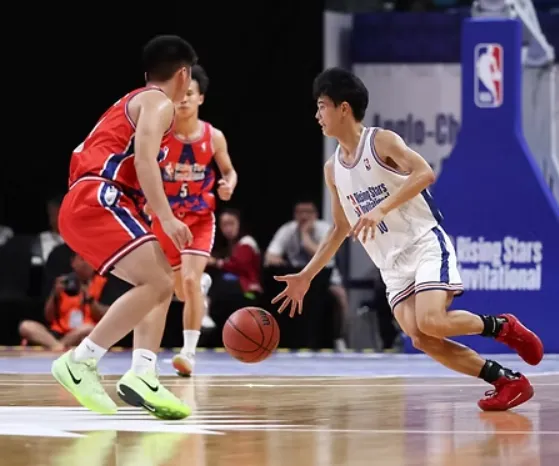Did you know that nearly a million viewers tuned in last year to watch university teams battle it out on the international basketball stage? That growing excitement centers around the World University Basketball Series (WUBS), a fast-rising tournament that is changing the way collegiate basketball is played and perceived around the world. If you’re curious about what makes WUBS unique, how it started, and why it matters, this guide breaks down everything you need to know.
How WUBS Began
The series was launched in 2022 with a bold vision: to elevate the level of university basketball in Asia while creating opportunities for young athletes from across the globe to showcase their skills. Organized by the All Japan University Basketball Federation in partnership with Rakuten Sports, the event quickly established itself as a major highlight in the international sports calendar.
Its mission goes beyond competition. At its core, WUBS aims to empower student-athletes by giving them recognition, growth opportunities, and a platform to connect with different cultures. In just a few short years, the tournament has attracted huge audiences both in stadiums and online, proving that university basketball can inspire a global following.
Format and Structure
Unlike traditional knockout competitions, WUBS adopts a double-elimination system. This means that even after a loss, a team still has the chance to fight its way back into contention. The format ensures high-intensity games and plenty of dramatic comebacks.
The tournament usually takes place over three days, with more than ten matches squeezed into the schedule. Early rounds are played across two full days, while the final day crowns the champion. Following FIBA rules with slight regional adjustments, the games are hosted at Tokyo’s Yoyogi National Stadium Second Gymnasium, a venue perfectly suited to the international spotlight.
Teams from Around the Globe
Every year, WUBS brings together eight universities from different parts of the world, creating a diverse and highly competitive field. The 2025 edition includes top teams from the Philippines, Japan, South Korea, Chinese Taipei, Hong Kong, and Australia. Defending champions De La Salle University return, joined by the University of the Philippines, Korea University, National Chengchi University, and others who represent the elite of collegiate basketball in their regions.
This mix of teams highlights the tournament’s focus on cultural exchange as much as athletic excellence. For the players, it’s not only about winning but also about experiencing new styles of play and forming international connections.
Highlights from Past Tournaments
Though still young, WUBS has already delivered unforgettable moments. In 2023, National Chengchi University from Chinese Taipei lifted the inaugural trophy, led by standout performances from captain Mouhamed Lamine Mbaye. Their victory capped off years of domestic dominance in Taiwan’s university league.
A year later, De La Salle University from the Philippines took the crown in commanding style, defeating Korea University in the finals. Their consistency and offensive firepower made them one of the most impressive teams the series has seen so far.
Strategies Behind Success
Analyzing championship teams reveals some common patterns. Winning programs tend to balance efficient scoring with defensive adaptability. In 2024, De La Salle consistently posted strong quarter-by-quarter numbers, proving that sustained performance across the entire game is critical.
Data and analytics now play a key role as well. Programs that track shooting percentages, study opponent tendencies, and optimize player rotations have an edge. Beyond stats, success also depends on preparation—building endurance, maintaining strict recovery routines, and cultivating mental toughness for high-pressure environments.
Beyond the Court: Development and Growth
WUBS isn’t just shaping results on the scoreboard—it’s changing how universities invest in their sports programs. Exposure to international competition pushes schools to raise their standards in coaching, training, and recruitment. Players return to their home leagues with sharper skills and broader perspectives, boosting the overall quality of collegiate basketball in their regions.
The event also carries cultural importance. Athletes learn to adapt to new playing philosophies and embrace cultural exchange, aligning with WUBS’s goal of using basketball as a tool for personal growth and global understanding.
The Road Ahead
With participation and viewership growing each year, WUBS is well on its way to becoming one of the most important fixtures in global university sports. The 2025 tournament marks another step forward, with expanded representation and increasing competitiveness among teams. For universities, the chance to participate is not just about competing but about joining a movement that is reshaping the future of college athletics.
Final Thoughts
The World University Basketball Series is more than a championship—it’s a celebration of basketball’s power to connect people across cultures. From its innovative format to its commitment to developing student-athletes, WUBS represents a new standard for collegiate sports.
As it continues to grow, one thing is clear: WUBS is not only raising the profile of university basketball in Asia but also inspiring players and fans around the world. The future of college basketball is international, competitive, and full of possibility—and WUBS is leading the charge.












